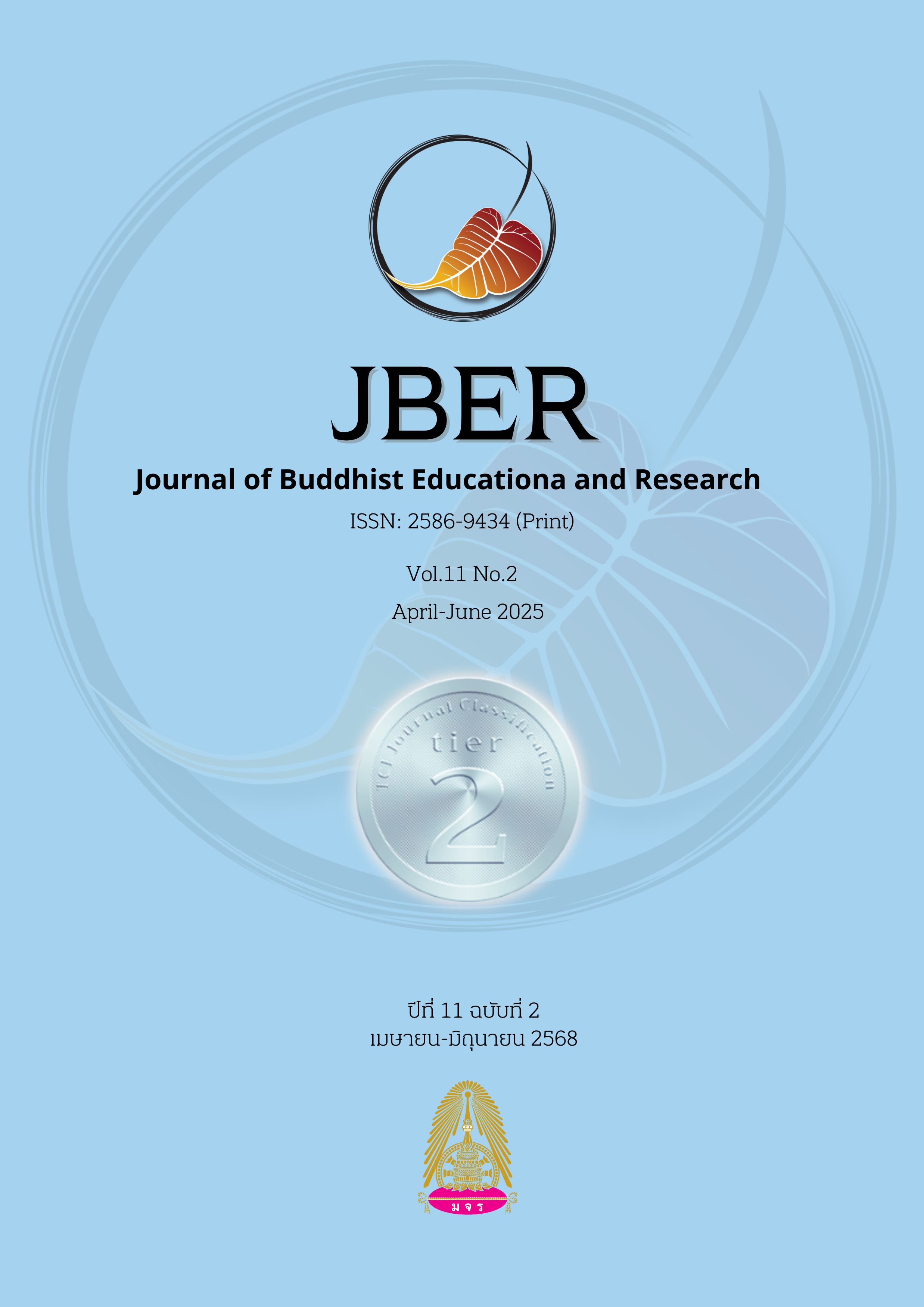Community Based Experiential Learning Activities to Develop Shallow Citizens to Know About Local Culture of Elementary School Students
Keywords:
Experiential learning, Knowledgeable citizen, Laplae local foodAbstract
This research is qualitative research with two objectives: 1) to study the current status and problems in the organization of learning about Laplae local food culture of social studies teachers, and 2) to develop experiential learning activities on a community basis to develop citizens who are aware of Laplae local food culture of primary school students. The target group consisted of 42 people, consisting of 3 social studies teachers, 3 people who are experienced in making Laplae local food, and 36 students in grade 3 of Uttaradit Kindergarten School. The research instruments used in the study were 1) an interview form on the current status and problems in the organization of learning about Laplae local food culture of social studies teachers, 2) an interview form on information about Laplae local food, and 3) guidelines for organizing experiential learning activities on a community basis to develop citizens who are aware of Laplae local food culture. The researcher analyzed the qualitative data using content analysis and synthesized descriptive writing. The research results found that 1) the current problems in the organization of learning about Laplae local food culture Currently, most of them follow the 2008 Basic Education Core Curriculum and the integration of local content into the subjects is limited. Most of the learning management is mostly lectures. 2) Knowledge gained from those who have experience in cooking Lablae food found that Lablae local food uses local ingredients, especially from the fence or available in season. It is easy to make and can be eaten all day long. 3) Experiential learning activities on the community base to develop citizens who are aware of Lablae local food culture. This is the integration of experiential learning concepts and community-based education concepts in the preparation of activity guidelines. The components include principles and reasons, activity objectives, content, activity guidelines, measurement and evaluation guidelines, and contents including basic knowledge of Lablae local food, Khao Kaep, Mee Pan, Mee Khuk, Lod Chong Kem, and Miang Wan. 4) Results of the activities The experiential learning activities on the community base to develop citizens who are aware of Lablae local food culture are divided into 3 aspects: In terms of knowledge, it was found that students have knowledge of Lablae local food and can explain the characteristics, components, steps, and methods of making Lablae local food. In terms of practical application, it was found that students were able to apply the knowledge they gained to actual practice. Students prepared the ingredients and followed the steps for making Laplae local food. In terms of desirable characteristics, it was found that students were able to apply the knowledge they gained and the experiences they gained in actual practice to their daily lives and help conserve and disseminate Laplae local food. Therefore, community-based experiential learning activities to develop aware citizens can be integrated in line with the local context to create a variety of learning activities, which will affect the organization of learning activities by teachers to be diverse, and students as learners will gain knowledge, experiences, and desirable characteristics.
References
กระทรวงศึกษาธิการ. (2545). พระราชบัญญัติการศึกษาแห่งชาติ พ.ศ. 2542 และแก้ไขเพิ่มเติม (ฉบับที่ 2) พ.ศ. 2545. กรุงเทพฯ: โรงพิมพ์องค์การรับส่งสินค้าและพัสดุภัณฑ์ (ร.ส.พ.).
กระทรวงศึกษาธิการ. (2551). หลักสูตรแกนกลางการศึกษาขั้นพื้นฐาน พุทธศักราช 2551. กรุงเทพฯ: โรงพิมพ์ชุมนุมสหกรณ์การเกษตรแห่งประเทศไทย.
กรทักษ์ เม่นวังแดง, และคณะ. (2547). ข้าวแคบ. สืบค้น 16 มกราคม 2567, จาก http://www.museumthailand.com/th/3976/storytelling/
นภาพร แสงนิล. (2561). กลยุทธ์การเสริมสร้างคุณลักษณะความเป็นพลโลกให้กับผู้เรียนโรงเรียนมัธยมศึกษาจังหวัดน่าน (วิทยานิพนธ์ปริญญาดุษฎีบัณฑิต). มหาวิทยาลัยราชภัฏเชียงใหม่.
รัตนา ยะอนัน. (2552). กระบวนการจัดการเรียนรู้เพื่ออนุรักษ์ภูมิปัญญาอาหารท้องถิ่น ตำบลนานกกก อำเภอลับแล จังหวัดอุตรดิตถ์ (วิทยานิพนธ์ปริญญามหาบัณฑิต). มหาวิทยาลัยราชภัฏอุตรดิตถ์.
ศรีจันทรัตน์ กันทะวัง. (2558). การพัฒนารูปแบบการเรียนการสอนภูมิปัญญาท้องถิ่นตามแนวการสอนเชิงประสบการณ์ โดยใช้กระบวนการมีส่วนร่วม สำหรับนักเรียนระดับชั้นประถมศึกษา. วารสารสังคมศาสตร์วิชาการ, 8(1), 1–14.
สำนักงานส่งเสริมการปกครองท้องถิ่นอำเภอลับแล. (2556). ประวัติความเป็นมาของเมืองลับแล. สืบค้น 16 มกราคม 2567, จาก http://laplaedistrict.uttaraditlocal.go.th/
สิมสวัสดิ์ ก. (2565). การจัดการเรียนรู้โดยชุมชนเป็นฐาน: กลยุทธ์การจัดการเรียนรู้ในศตวรรษที่ 21 ท่ามกลางสถานการณ์การแพร่ระบาดของเชื้อไวรัสโควิด-19. วารสารวิจัยศรีล้านช้าง, 2(6), 47–55. https://ojs.mbuslc.ac.th/index.php/srj/article/view/151
โชตรัศมิ์ จันทน์สุคนธ์. (2551). วิชาสังคมศึกษา: ศาสตร์แห่งการบูรณาการ. วารสารวิชาการศึกษาศาสตร์ มหาวิทยาลัยศรีนครินทรวิโรฒ, 9(1), 16–23.
Ekman, J., & Amnå, E. (2012). Political participation and civic engagement: Towards a new typology. Human Affairs, 22(3), 283–300. https://doi.org/10.2478/s13374-012-0024-1
Honey, P., & Mumford, A. (1992). The manual of learning styles. Maidenhead: Peter Hone.
Kolb, D. A. (1984). Experiential learning: Experience as the source of learning and development. Englewood Cliffs, NJ: Prentice Hall.
Downloads
Published
How to Cite
Issue
Section
Categories
License
Copyright (c) 2025 Journal of Buddhist Education and Research (JBER)

This work is licensed under a Creative Commons Attribution-NonCommercial-NoDerivatives 4.0 International License.





